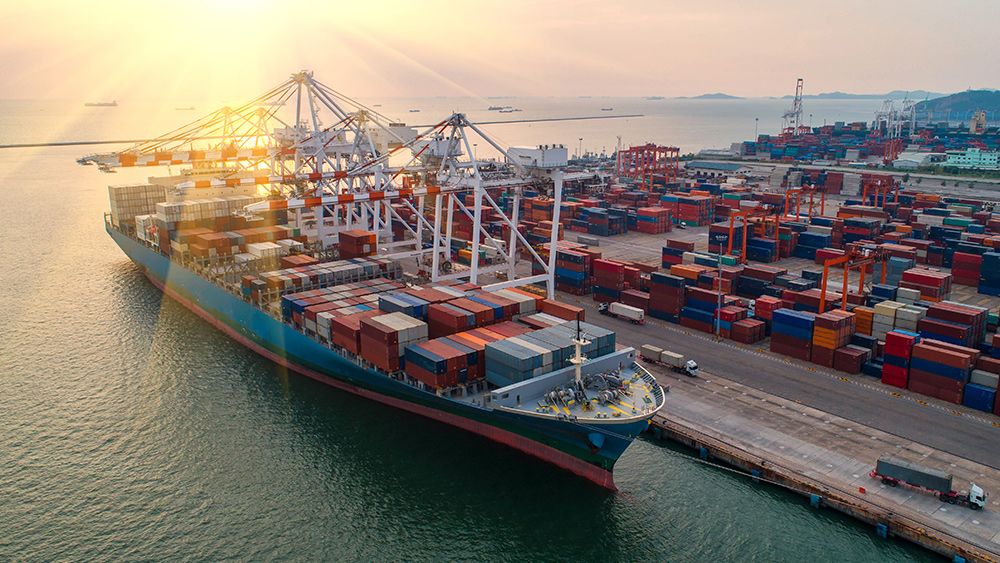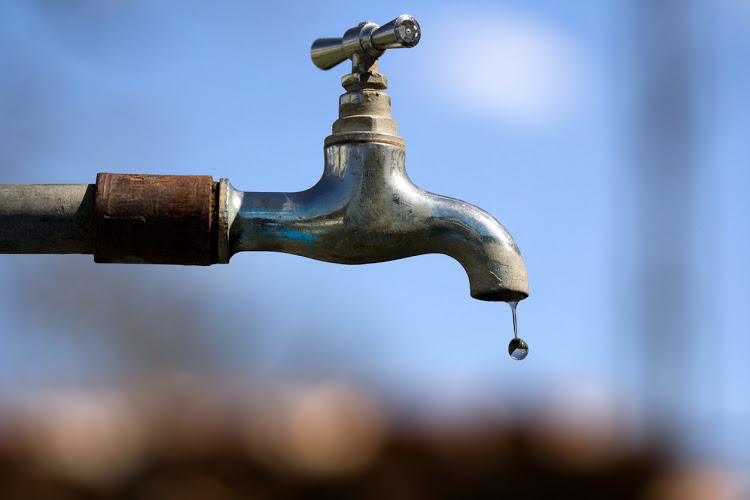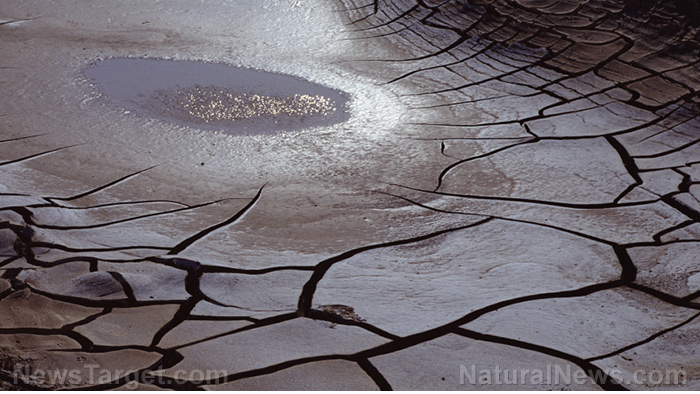Water in Germany’s Rhine River in critical level; waterway may soon be impassable
08/14/2022 / By Belle Carter

The falling water level in Germany’s Rhine River could make the waterway impassible by the end of the week, which would massively disrupt the traffic for inland commodity shipments via barges.
German Federal Waterways and Shipping Administration officials say that the river is 47 centimeters Wednesday, August 10, and is expected to drop to the critical depth of 40 centimeters Friday, August 12. There is even the possibility water levels could fall as low as 37 centimeters during the weekend. While dipping below 40 centimeters is still higher than the record low of 27 centimeters seen in October 2018, many large vessels would struggle to safely pass the river.
Weeks of baking weather have caused the river’s water level to plummet to a critically low point, posing a difficult obstacle to transporting goods such as coal and gasoline and causing headaches for German factories and power plants that rely on deliveries by ship.
“This is particularly the case for the Rhine, whose nautical bottleneck at Kaub has very low water levels, but which remains navigable for ships with small drafts,” Tim Alexandrin, a spokesman for Germany’s Transport Ministry said.
From France and Italy, Europe is struggling with dry spells, shrinking waterways and heatwaves that are becoming more severe and frequent. Low water levels are another blow for the industry in Germany, which is struggling with shrinking flows of natural gas that have sent prices surging.
“It is simply the most important river in Germany,” water management official Martin Mauermann explained to the New York Times during a previous round of drought back in 2018. “It is like the thick branch in the middle of the tree.”
The Maritime News, a top source for breaking maritime and shipping news, stated in an article that the timing could not be worse for Germany. The nation is trying to adapt its economy to the emerging reality of a Russian energy embargo.
“Coal is taking up new importance for power generation, and one-third of the nation’s coal imports come up the Rhine. The drought is already expected to reduce power output at two much-needed coal power plants over the next month,” the article read.
Parliamentary State Secretary to the Federal Minister for Digital and Transport Oliver Luksic said in a recent statement that in light of the Ukraine-Russia war, the importance of inland navigation for the supply of goods the society has become once again more than clear.
Coal supply crisis looms as Rhine River’s water level continues to dip
As the country faces an impending industry disruption due to the dropping water levels at the Rhine River, the country’s busiest and central trading waterway, the nation’s power plants are in an increasingly difficult situation to outsource coal.
The country is in the middle of an energy crisis caused by the Ukraine-Russia war as well as the sanctions placed by the West on Kremlin. (Related: Falling water levels on Rhine River making it difficult for Germany to source coal amid energy crisis.)
According to a recent Bloomberg report, Switzerland is also facing complications with oil product supplies due to the falling water levels.
Citing government data, the report stated that the river’s water level is at its lowest since 2007 for this time of year. The news outlet also cited S&P Global Commodity Insights, which claimed that in the coming months, Germany will only be able to access some 65 percent of its coal supply due to transportation issues.
Reuters further reported that while lower water levels on the German waterway have been wreaking havoc on commodity supplies to the country for over a week, an even sharper decline in levels in a key chokepoint is making it difficult for fully loaded barges to get through.
This means barge operators may charge higher rates for cargo owners, which will further increase prices for oil products, grain, and other commodities shipped on the Rhine.
Visit WaterWars.news for more news related to drought and water shortages.
Watch the below video that talks about climate-engineered drought.
This video is from the Absolute Surrender channel on Brighteon.com.
More related stories:
Drought in France forces authorities to place new restrictions on water usage.
German oil supplier just shut off all deliveries amid “excessive speculation and stockpiling.”
Coal emerges victorious as sanctions and green policies backfire spectacularly.
Gas flows from Russia to Germany halted INDEFINITELY following Gazprom force majeure declaration.
Sources include:
Submit a correction >>
Tagged Under:
big government, chaos, coal, coal power, coal supply, collapse, economic collapse, energy supply, environment, fuel supply, Germany, green tyranny, panic, power grid, Rhine River, sanctions, scarcity, supply chain, transport disruption, water levels
This article may contain statements that reflect the opinion of the author
RECENT NEWS & ARTICLES
SupplyChainWarning.com is a fact-based public education website published by SupplyChainWarning.com Features, LLC.
All content copyright © 2021 by SupplyChainWarning.com Features, LLC.
Contact Us with Tips or Corrections
All trademarks, registered trademarks and servicemarks mentioned on this site are the property of their respective owners.





















